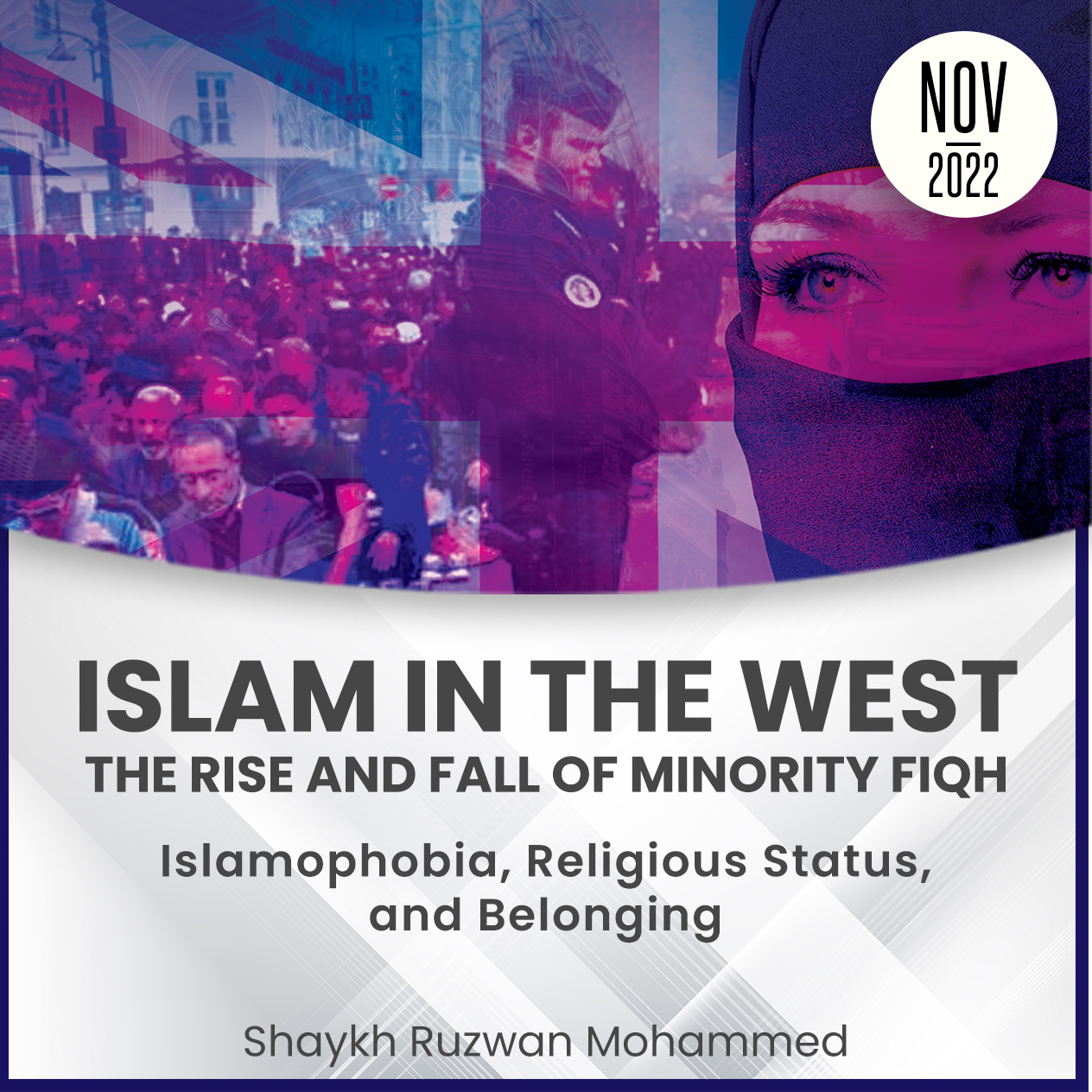Islam in the West: The rise and fall of Minority Fiqh – Islamophobia, Religious Status and Belonging
£59.00
This course will provide a unique and exacting study of Minority Fiqh, and in doing so explore the reasons for its rise and as yet unexplained fall from Muslim discourse in the West. It will navigate ideas around belonging as well as the current focus on Islamophobia, while at the same time tracking how Identity politics in general has managed to remodel Muslim religious priorities in the west.
The rise of identity politics and the social justice movement have arguably provided vitality to Muslim engagement with wider society, yet it appears to have had limited by-in from Muslim religious voices. At the same time, the surge in anti-Muslim sentiment in the west, borne out consistently in public opinion polls and the experience on the street, has led to many Muslims questioning issues around identity and belonging. Discourse on ‘Islamophobia’ has led to many Muslims making the case, albeit indirectly, that the means of securing rights in non-muslim lands is to focus on their status as ‘victims’…
Prior to this focus on identity and victimhood, a more direct religio-ethical discourse was promoted by prominent Muslim scholars in the ‘West’, that of ‘The Fiqh of Minorities’. For its advocates, it represents a novel area of Islamic law dealing with living as a ‘minority’. The Fiqh of Minorities was envisioned to harness the full weight of the Islamic legal tradition to provide a robust mechanism for an ongoing Muslim presence in the West. This course will ask whether there been a change in how Muslim scholars presented a ‘minority’ presence in ‘non-Muslim’ lands in the past and the present. More importantly, in an era where Islamophobia has become a well referenced phenomena, can we envisage further changes in religious fatwas, given the ongoing prejudice that such communities feel they are subject to?
The Fiqh of Minorities typically looks at questions such as: What is the status of Muslims currently living in the West in the light of Islamic legal theory? What are the roles and responsibilities of Muslims towards the countries in which they reside and of which they see themselves as integral parts? This course will also cover debates on the utility of terms such as Dar al-Islam and Dar al-Harb; General appraisals of Western Muslim’s claims to exceptionalism; ‘Salafi’ and ‘Traditionalist’ scholar’s fatawa on ‘Minority’ status and much more.
This special course will also cover selected case studies of Islamic law at work in a western context including:
Muslims fighting for non-Muslim state armies against majority Muslim states;
Permanent residence and citizenship in non-Muslim countries;
The marriage status when a spouse embraces Islam;
The religious status of Interest based loans and mortgages;
The religious status of inheritance from non-Muslim relatives.
Join Shaykh Ruzwan Mohammed for our LIVE and EXCLUSIVE 4 week, seven-session short course, including an extended Live Zoom Q&A/interactive session for all enrolled students.
Out of stock


